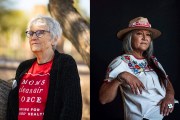Just last year, Carletta Davis had the ear of the White House.
In July 2024, she traveled from her hometown of Prichard, Alabama, to Washington, D.C., to attend the Biden administration’s first environmental justice summit.
It was a celebration of the nearly four years of work by the administration to propel forward on a federal level the effort to ensure everyone has a clean and healthy environment. It’s a grassroots movement that, across the country, has often been led by women of color. For local environmental justice leaders like Davis, being invited to the White House after years of advocating for her hometown made it feel like her work and her community were being taken seriously by the federal government.
“We were so hopeful because, first of all, there had never been a president that elevated environmental justice to the White House,” she said.
The summit wasn’t the first time Davis felt that hope. She attended seven different convenings on President Joe Biden’s environmental justice efforts, for which he created an office to amplify support. At these events, she met other women of color from the South, who were leading the fights in their own communities and connected with federal officials. She learned how to apply for various opportunities to fund environmental justice work in Prichard and won a $500,000 grant. At the time of the summit she was finishing up an application for a second one.
The day after the summit, she met with Environmental Protection Agency officials to discuss an issue she had been working on for years: Her community, where more than 90% of residents are Black, was on the precipice of a public health crisis due to a failing water and sewage system. She was hoping to secure some federal funding and support to put toward paying for repairs, which were estimated to cost upwards of $400 million.
With all of the inroads she’d created, Davis felt like some of that crucial funding was in reach. But a few short months later, on November 5, everything changed.
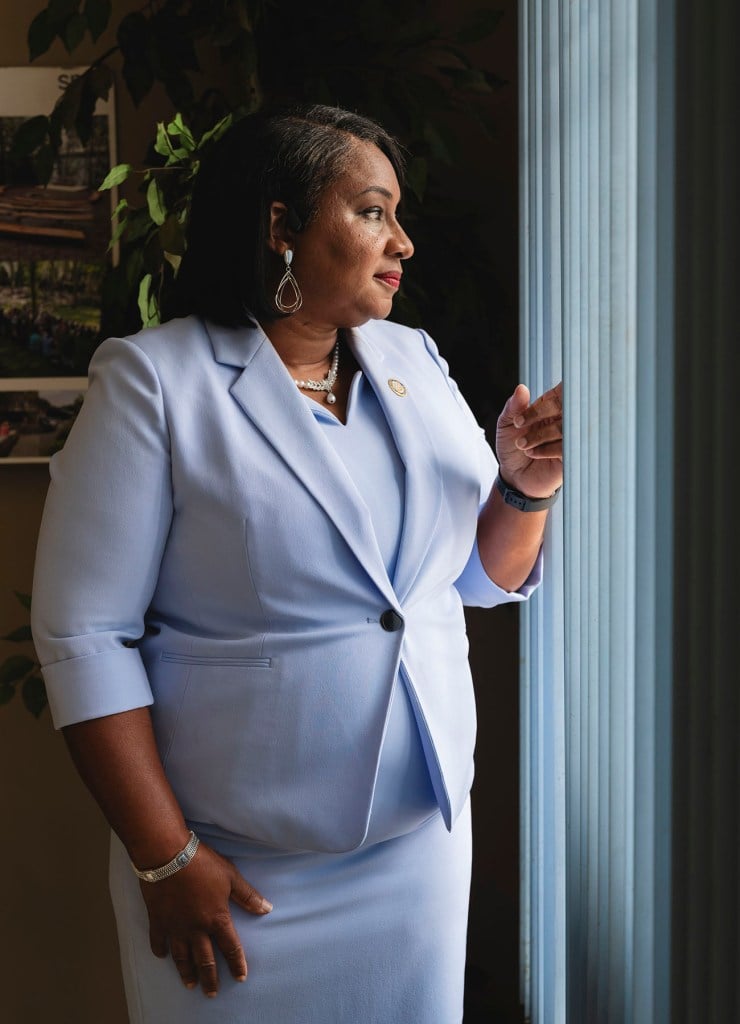
(Camille Farrah Lenain for The 19th)
The office of environmental justice disappeared —along with funding opportunities. And a lot of what Davis had been working toward evaporated with it.
“For folks like myself who were so entrenched in the work … to have that be ripped from under us, it took me a minute to get my mojo going even just mentally,” Davis said.
Prospects for Prichard’s water system dimmed. And as the Trump administration quickly rolled back environmental regulations, Davis worried Prichard would face future threats from industry, which disproportionately burden communities like her own with pollution.
Davis realized she had to pivot. If causes like hers no longer had the support of the federal government, she needed to bring her leadership closer to home. With a mayoral election slated for August, “I knew that I had to step up and run,” she said.
On a Saturday in early May, Davis was driving around Prichard when she encountered a common scene in her hometown. A heavy flow of storm water mixed with raw sewage bubbling up from a manhole cover in an intersection. The smell was awful.
“This is just unacceptable,” she can be heard saying on a video she filmed of the overflowing sewage.
Prichard’s water and sewage problems came about because like many other majority Black communities, its population dropped in the 1960s due to white flight. At the same time, a large percentage of its tax base was annexed by neighboring Mobile. This means that for decades, the utility wasn’t investing in its infrastructure because it didn’t have enough customers to pay for it.
More recently, mismanagement and fraud at Prichard Water Works & Sewer have contributed to a looming public health crisis: On that May weekend alone, the utility reported that over 4.5 million gallons of sewage had spilled in the town of 20,000; since 2021 over 50 million gallons of sewage leaked.
Residents are afraid to drink the water that flows from their taps. The system has had issues with maintaining adequate chlorine levels, which keeps bacteria out of the water, and residents have been exposed to contaminants that can cause long-term health issues. As recently as March, the utility sent a letter to customers notifying them that their water contained an elevated amount of a chemical that has been linked to an increase in the risk of cancer.
And even as many residents can’t drink the water, there are massive bills to use it: The failing pipes lose most of the water before it ever reaches homes, causing sky-high water bills in a town where over 30 percent of people live below the poverty line.
Davis, who formerly worked as a banker, says the water issues have plagued Prichard for decades. She can remember it being a dinner table conversation when she was a kid: “Growing up in Prichard, you just don’t drink the water,” she said.
The water issue came to a head in 2022 when several members of the utility’s board were arrested on charges of fraud, two have since pleaded guilty. That’s when Davis began to look for solutions at the federal level. In 2023, she worked with the Southern Environmental Law Center (SELC) to file an emergency petition with the EPA to escalate the community’s water crisis to the federal level.
Ryan Anderson, a lawyer with SELC who represented Davis in her EPA petition, said it was part of a strategy to raise awareness and hopefully get the federal government to act swiftly.
“We definitely were hopeful with the Biden administration’s focus on [environmental justice], that raising this issue would bring some immediate funding in Prichard,” she said.
While no federal funds materialized as a result of the petition, Davis was optimistic that getting the issue on the radar under Biden would eventually result in some relief for the community, especially as she began to build connections with others in government.
At the same time, resources from various environmental justice programs were making their way into the community. The city receiver, John Young, who was appointed by the county in 2023 to manage the water utility and look for solutions to the water crisis, received free technical assistance from the EPA to evaluate various options for the utility, he had also applied for a $20 million grant from the EPA. A researcher at the University of Alabama had also won a $5 million grant, part of which would go to track wastewater in rivers that run through Prichard, research that could bolster the argument for new sewage infrastructure to protect residents’ health.
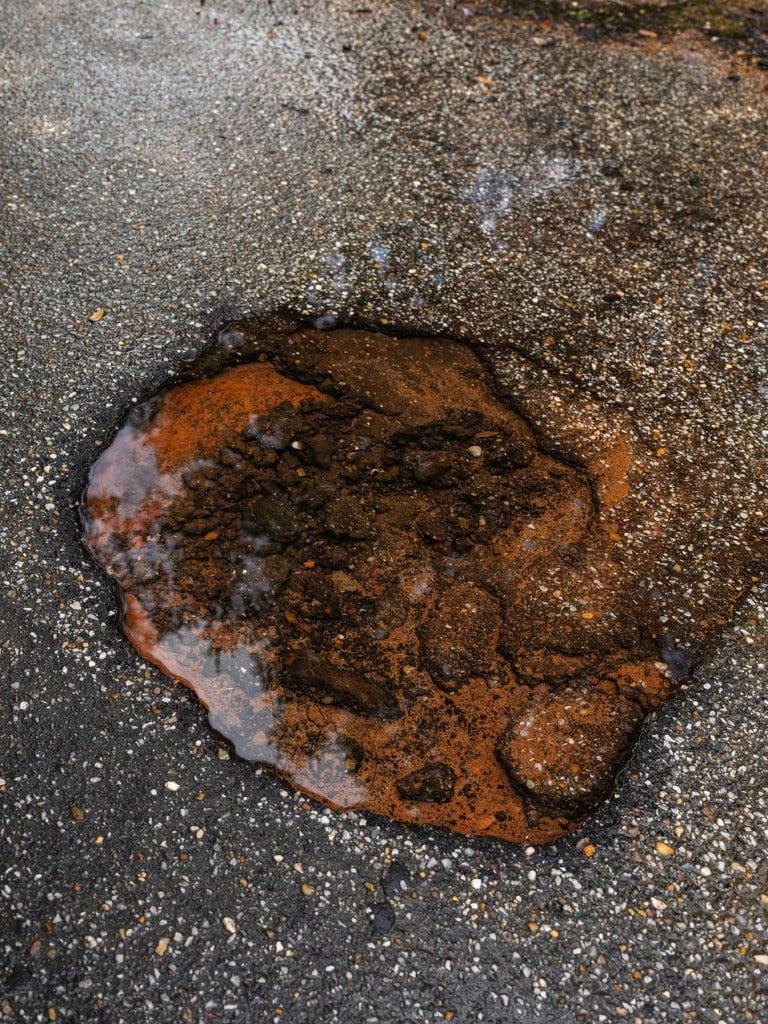
But once President Donald Trump returned to office, every grant either died in the application process or was rescinded after he issued an executive order, “Ending Radical and Wasteful Government DEI Programs and Preferencing,” which derailed any efforts to work on environmental justice.
Young said that when he applied for grants with community partners, they used words like racial equity and environmental justice. But under Trump, “those are all the wrong words,” he said. And with agencies like the EPA laying off thousands of people, including those who review future grants, Young isn’t optimistic that more funding will become available.
It’s not just Prichard that is seeing setbacks in its fight for funding.
Lowndes County, Alabama, made headlines last year for winning a historic settlement that marked the first time in U.S. history that civil rights laws had been applied to an issue of environmental justice. The county, which is majority Black, lacked sewage infrastructure, forcing many residents to live with raw sewage in their backyards. The federal government allocated $26 million dollars to pay for sanitation infrastructure, but the Trump administration ended the program, calling it “illegal DEI.”
Anderson, who works with communities across the state, said the shift in federal government funds across the board will impact the ability to solve issues like the Prichard water crisis.
“States like Alabama rely heavily on federal funding and federal grant funding to protect their citizens,” she said. “For places like Prichard, the federal government is supposed to be the backstop for this situation. If funding cuts are being made across the board that makes advocating for that funding that much harder.”
Davis also feels strongly that Prichard is struggling to secure funding because of the race of its citizens. “It is clearly a Black and White issue,” she said. “If this was a higher social class of community. They would have never used the excuse of mismanagement to withhold resources that were needed for this community.”
On a humid, overcast day in June, Davis parked her car in a quiet neighborhood of single story homes, one of the first affordable housing developments in Prichard, and knocked on doors with one of her campaign volunteers. At one house, an older woman listened intently to Davis talk about why she was running for mayor and what she would do to address public safety and, of course, the failing infrastructure.
After Davis finished speaking, the woman asked: “What about the water bill?”
Davis gets that question a lot. Due to dilapidated water pipes and leaking storage tanks that are in desperate need of upgrades, the city loses over half of its drinking water, which it buys from a neighboring utility, before it ever reaches customers. So residents pay some of the highest water bills in the state. The woman Davis chatted with said she pays around $200 a month. Others in town have reported paying bills that are over $2,000.
Davis listened and assured the woman she will do everything in her power to make sure the community can get clean and affordable water.
“I’ve been in the center of the water issue,” she said. “That’s going to continue to be my fight.”
If you ask Davis about how she got into this work, she’ll tell you she became an activist by “force, not by choice.”
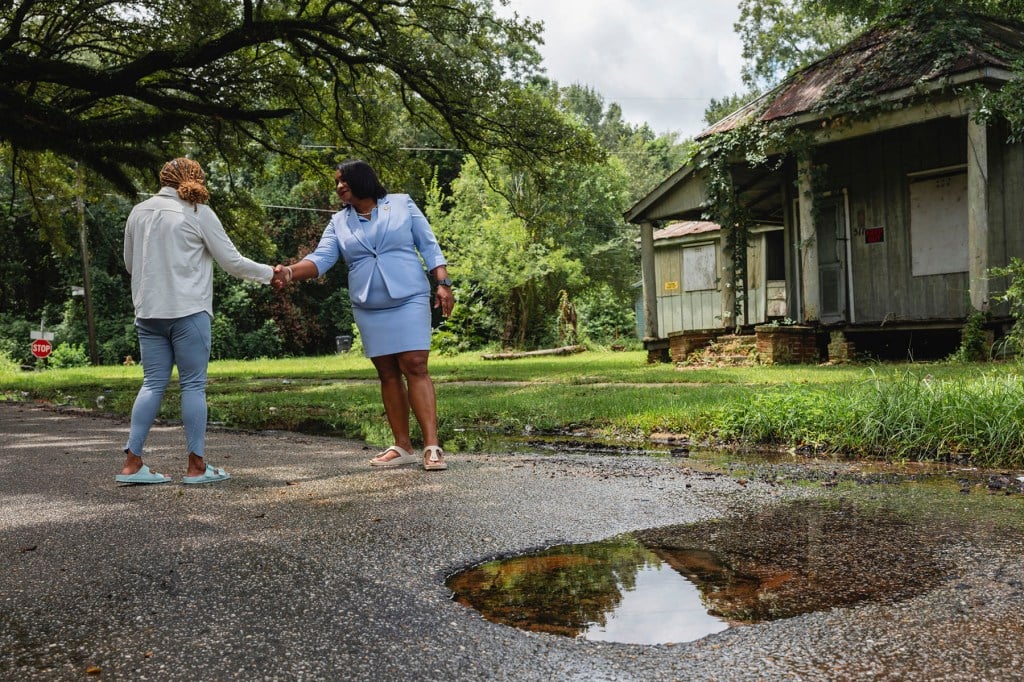
In 2008, a gas company leaked over 6,000 gallons of a chemical known as mercaptan from a broken tank supply line. But it wasn’t until three years later that residents became aware of the leak, after it seeped into their groundwater. It released an odor akin to rotten eggs.
The spill was less than a mile from the mother of five’s home and was causing health issues in her family. One of her daughters was experiencing vertigo, and her son was constantly getting nosebleeds when he went outside. Her grandmother started having breathing problems.
Knowing that her community had been unwittingly exposed to the chemical for years made her irate at the company, at local officials and at the state for not doing more to help residents in the aftermath.
“I was outraged that we were not made aware that the spill had happened,” she said. “I was angry over the fact that my children were not being considered.”
She could see the effects it was having in the community. Apart from the health conditions, like headaches and respiratory issues, the odor lasted for years. Later the state’s public health department would release a statement finding that the odors from mercaptan did have adverse health effects and overall impacted the quality of life of residents.
By 2016 Davis had formed her own environmental justice organization, We Matter Eight Mile Community Association, as a way to mobilize on the issue. She raised awareness of the leak in the local and national press, and marched at the federal courthouse in Mobile to put pressure on the U.S. Justice Department and EPA to investigate the health impact of the spill. In 2017, she filed a complaint with the U.S. Housing and Urban Development over the failure to relocate impacted residents, but the first Trump administration later ruled there was no justification for the complaint and dropped it.
“Our community never was made whole from that incident,” she said.
Davis’ campaign office is located off one of the main roads through town, sandwiched between a life coach’s storefront and a motorcycle club’s meeting space. A large vinyl banner stretches across the top of the door with a commanding picture of Davis in a red blazer, and the words “Vote Carletta Davis, Mayor of Prichard.”
Davis rented out this space in early February after launching her bid for mayor. She calls it “the war room,” and it’s where she spends her days strategizing for her campaign and holding office hours for residents who often come in to find out more information about the water issues plaguing the town.
The election is on August 26, and 9 candidates, including the incumbent mayor, are fighting for the seat. Davis is the only person running with a background in environmental justice.
As mayor, she hopes to bring transparency to the process of fixing the issues that have plagued the water utility. But as a local official, she won’t just have to advocate for these issues, she’ll play a key role in determining the outcome of the water utility, including weighing in on how to appoint a new board.
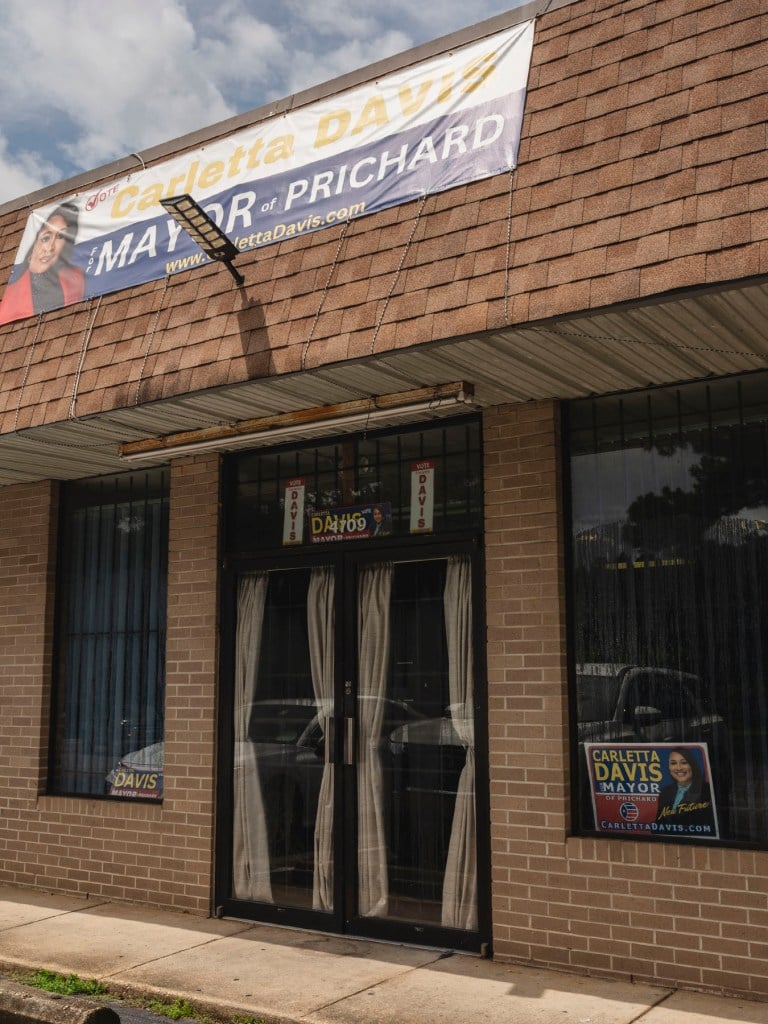
(Camille Farrah Lenain for The 19th)
At the moment, the future of the utility is up in the air. Young, who has worked in other places like Flint, Michigan, and Jackson, Mississippi, has suggested that the only viable solution to address the urgency of the flailing system and impending public health disaster is to hand ownership over to Mobile’s utility company. But it still requires Prichard’s utility to secure millions of dollars first, in order for Mobile’s to even consider taking it over.
It’s also a solution that Davis vehemently opposes. If Mobile’s board takes over, residents will likely not have any local representation to advocate for their best interests, Davis said. They won’t have a say in rate hikes, and she worries the utility could end up having control over their water sources.
“Them taking our largest asset and be able to control the trajectory of our economic growth is suicide city,” she said of her fear.
As mayor, Davis hopes that she can sway county and state officials to work on other solutions that would allow the city to keep its utility. She can also put her experience working within federal systems to work — even if this administration is much less sympathetic.
“I believe that if we cannot get relief from the administration then we need to go to Congress, and we need to go to federal court in order to get the relief that is necessary,” she said. “The mayor has to be willing to pull all of those levers.”
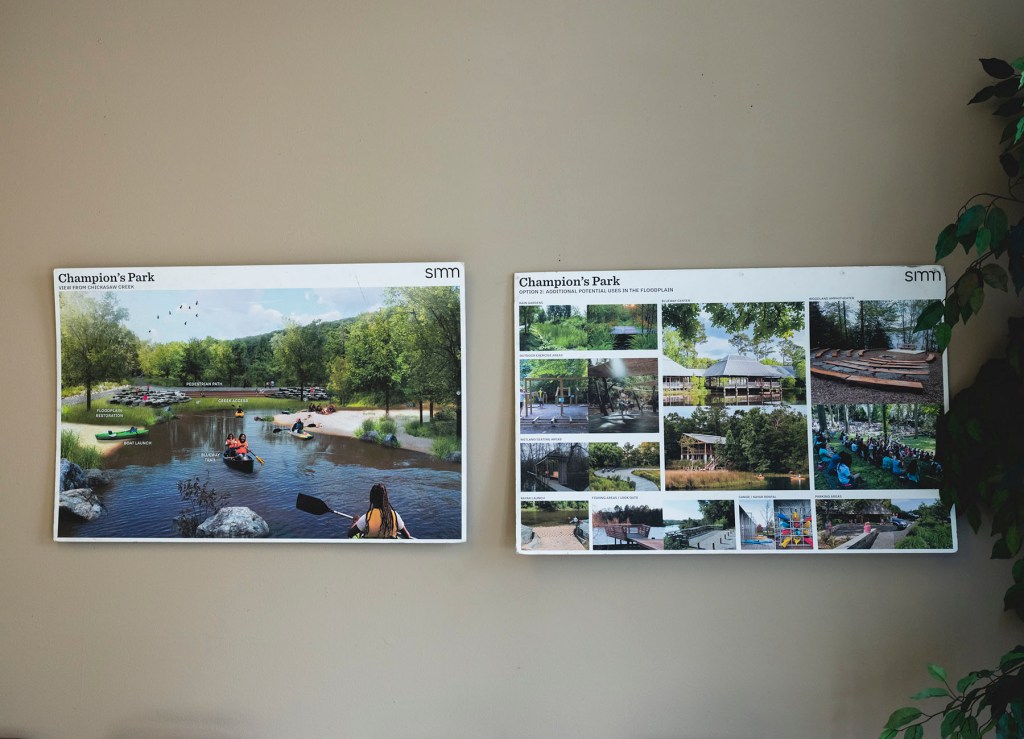
As mayor, Davis said she could also help protect the community from federal efforts to overturn environmental regulations. She’d have more control over local rulemaking and could influence both the zoning of the city and write ordinances that could buffer the community from possible encroachment of industry that has strangled a neighboring community, Africatown. The port community, famous for being founded by descendants of the last group of enslaved people to land in the United States, is home to over 200 industrial facilities and rail yards that have polluted the region.
Jalonne White-Newsome, the former White House environmental justice officer, said she thinks local leadership is one of the main avenues to protect environmental justice initiatives under an administration working to undo progress across the county.
“We will hopefully see more community leaders that are stepping up and stepping into these roles whether it’s on boards, or mayoral, or city council elections, because that’s going to be where it’s at for the next at least three, three and a half years,” she said. “We need more community leaders to run for office and step into these positions.”
Ahead of door-knocking on that June afternoon, Davis walked into her office with a local minister, wearing red matching “vote Carletta” shirts. They had come from a grand opening for a local restaurant.
A high school friend of Davis’ comes in to pick up some door hangers to distribute in her neighborhood. On her way out, a posterboard propped up on an easel catches her eye. On display are a series of mockups showing a lush creek area and nature park developed to include event pavilions, wooden walkways, a playground and bike paths. It was a park Davis had almost won a $20 million EPA grant to build.

(Camille Farrah Lenain for The 19th)
The 34-acre park would have allowed for recreational opportunities like kayaking and bicycling while also helping to safeguard the community from flooding, which is worsening in this part of the state due to climate change.
Looking at the plans, Davis’s friend remarked, “Girl, this will attract a lot of positivity.” Davis agreed. “It’s healthy for the environment and it’s healthy for people,” Davis said as she looked at the mockups.
It was a reminder of Davis’ dream that her community will one day be able to thrive, and move beyond a fight for basic infrastructure. Later in the day, Davis drives over to visit the site of the dream park. She pulls into a patch of grass next to the highway and watches the creek run under the bridge. It’s surrounded by a lush forest, and she can imagine it one day being a place the community can be proud of and enjoy.
It’s a vision that runs through her campaign materials, where she describes a Prichard that she hopes to leave for her children — a place where people can recreate on the city’s waterways, fish from healthy rivers and have safe drinking water.
Great Job Jessica Kutz & the Team @ The 19th Source link for sharing this story.






